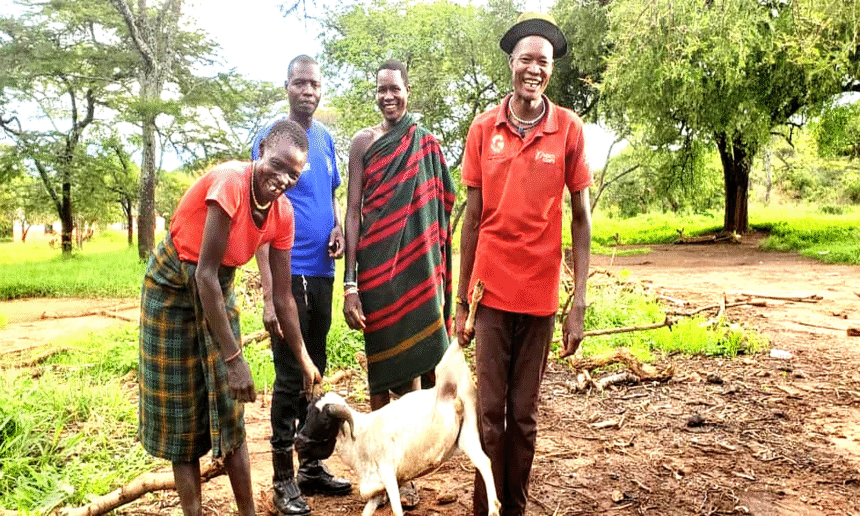In Lokiyoto Village, decision-making within households has traditionally been the sole domain of men. Important matters—such as selling livestock, managing finances, or allocating family resources—were often decided without consultation, leaving women excluded from shaping their own families’ futures.
For years, this was the reality for Koryang John and his wife Ilukal Lucia, parents of three. John made nearly all key decisions alone, believing that was the mark of a strong household head. While Lucia managed day-to-day family care, her voice remained unheard in matters that affected their shared livelihood.
That began to change when the couple attended a community dialogue on gender norms facilitated by the Karamoja Peace and Development Agency (KAPDA), with support from Mercy Corps. The sessions encouraged couples to reflect on the benefits of shared decision-making, mutual respect, and equal participation in managing family resources. They explored how collaboration could strengthen not only relationships but also economic outcomes for the entire household.
One pivotal moment came shortly after the dialogue. A buyer approached John, eager to purchase one of the family’s goats—a valuable asset. In the past, John would have agreed immediately. This time, he told the buyer to wait, returned home, and discussed the decision with Lucia. Together, they weighed the family’s needs, the value of the goat, and their financial priorities before agreeing to the sale.
“It was the first time my opinion truly mattered in such a big decision,” Lucia shared, her voice filled with pride. John, too, had a revelation: “Before, I thought deciding alone made me strong. Now I know that sharing decisions makes our family stronger.”
Today, John and Lucia’s home is a model of cooperation. They consult each other on investments, livestock sales, and even household chores. Their example is inspiring other couples in Lokiyoto Village to embrace equality in decision-making, proving that when both partners share power, the entire family—and the community—thrives.
This transformation shows the lasting impact of KAPDA’s work: changing mindsets, strengthening families, and building the foundations for peaceful, equitable communities.


